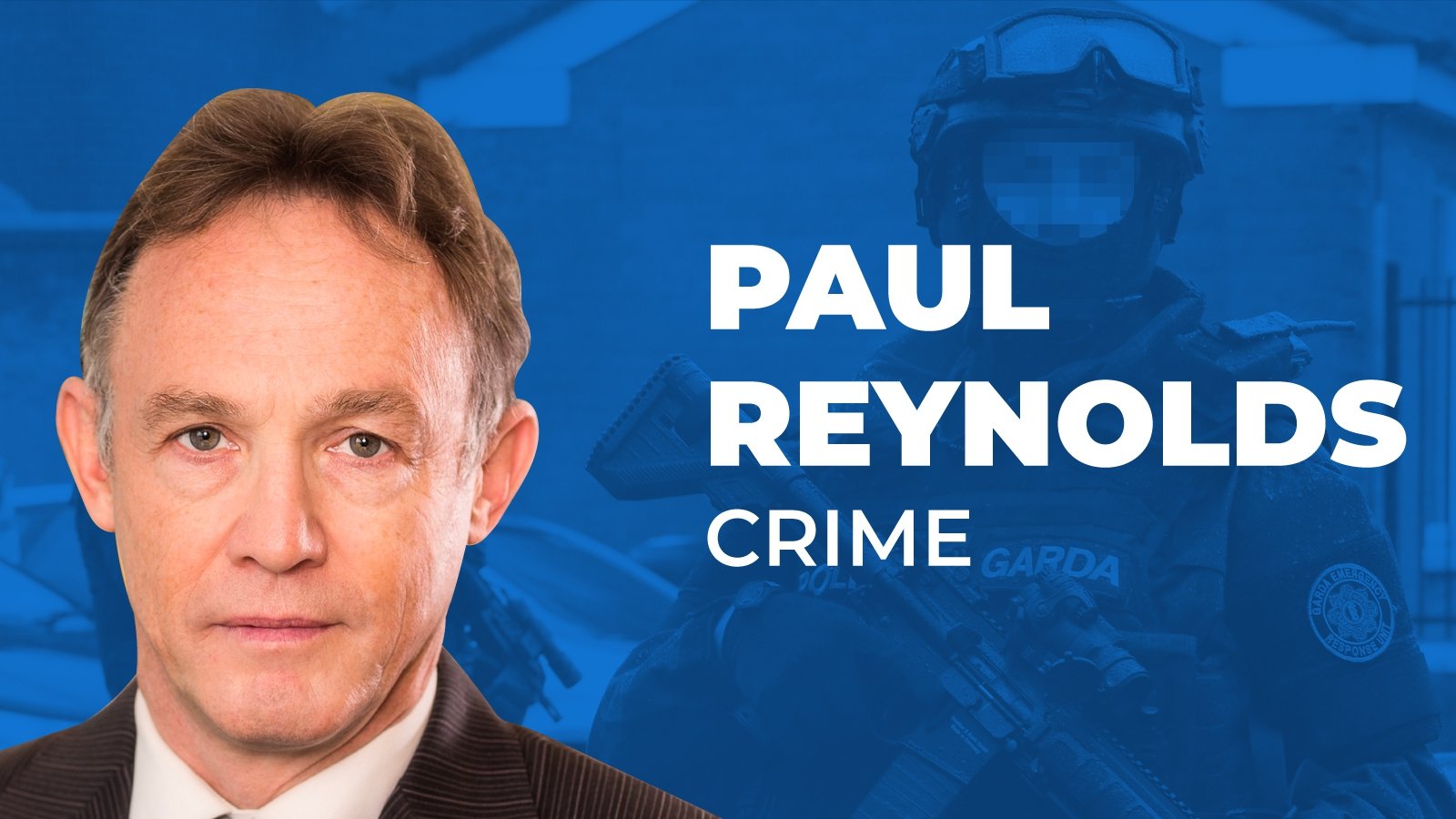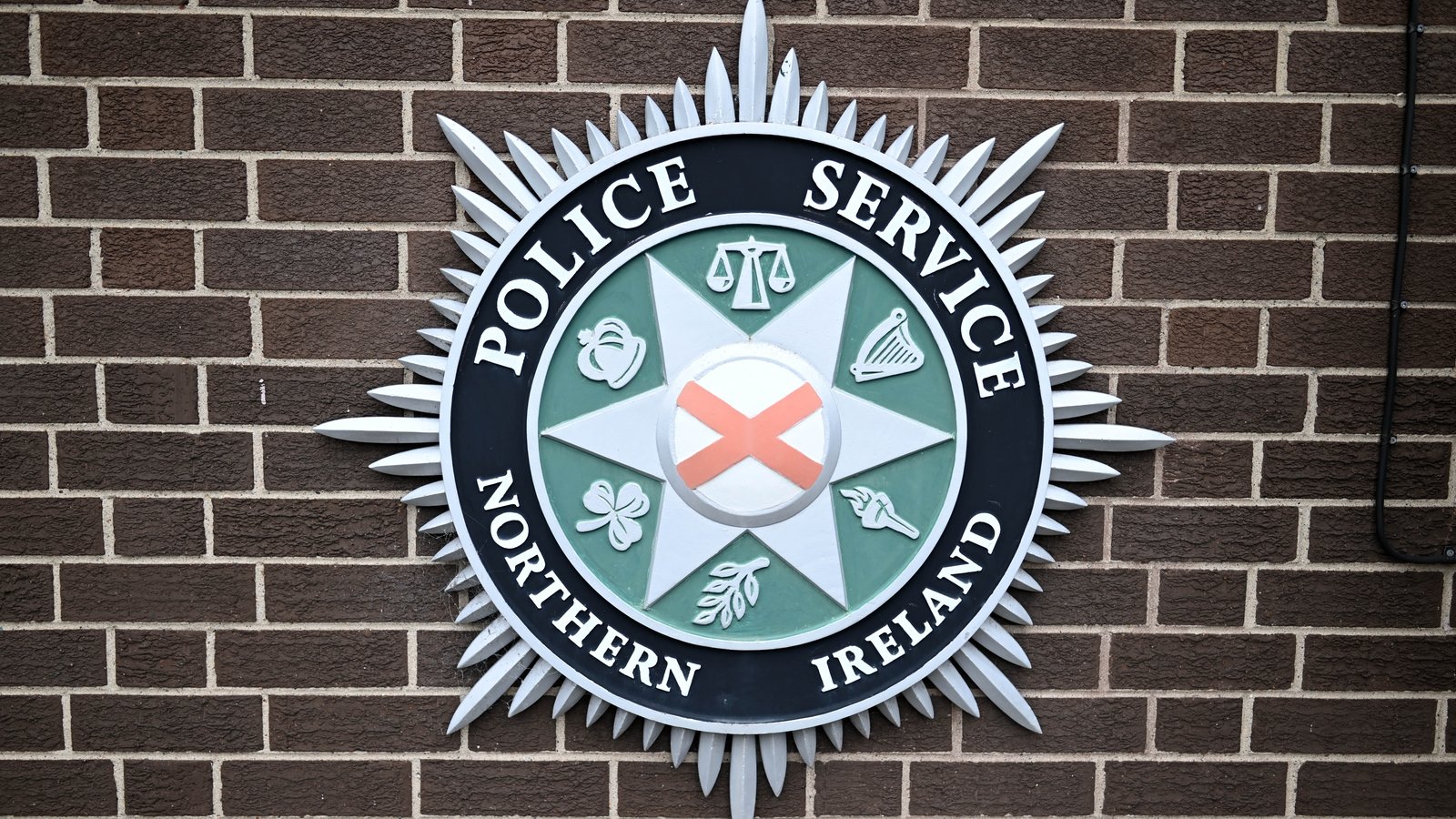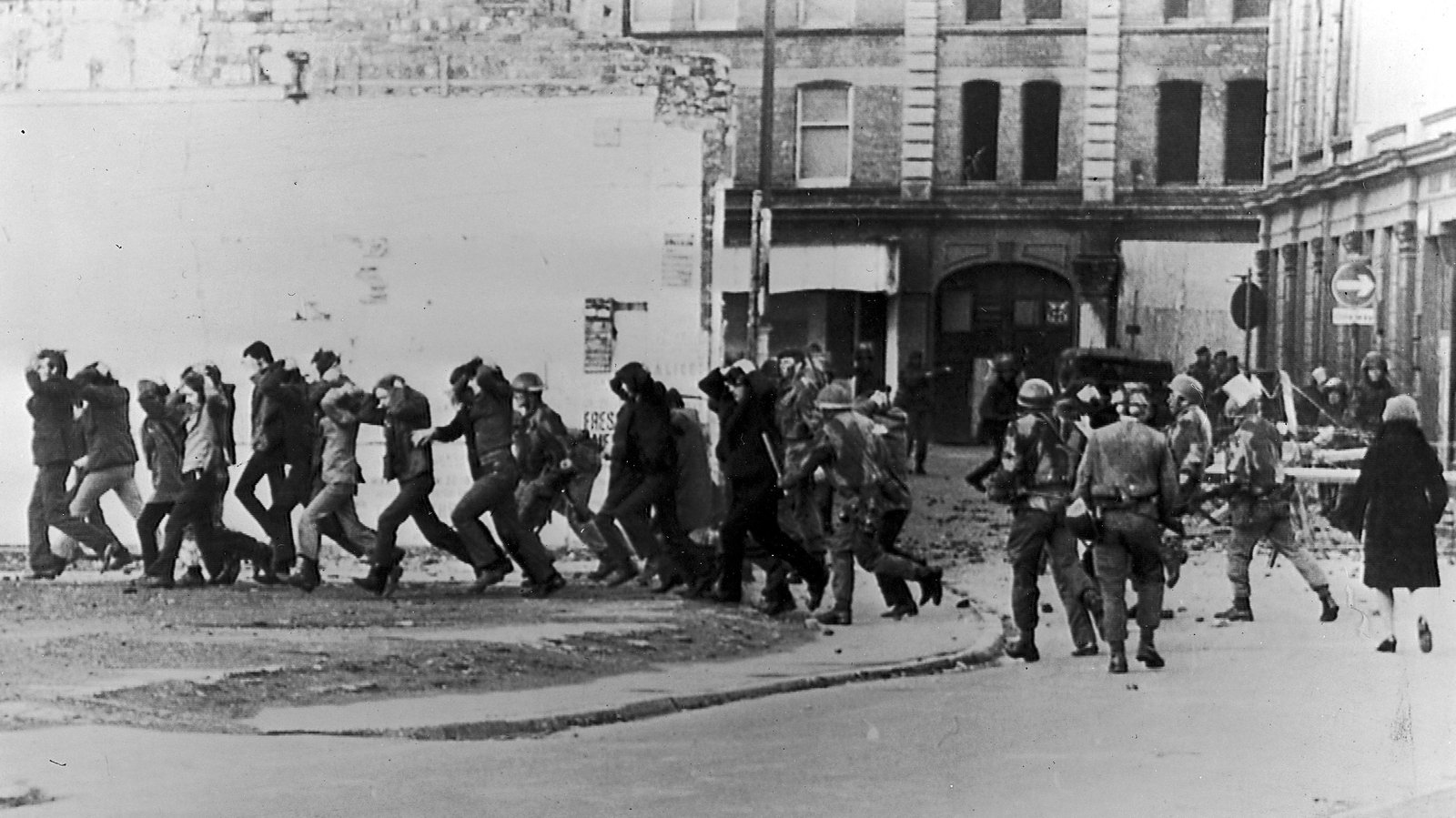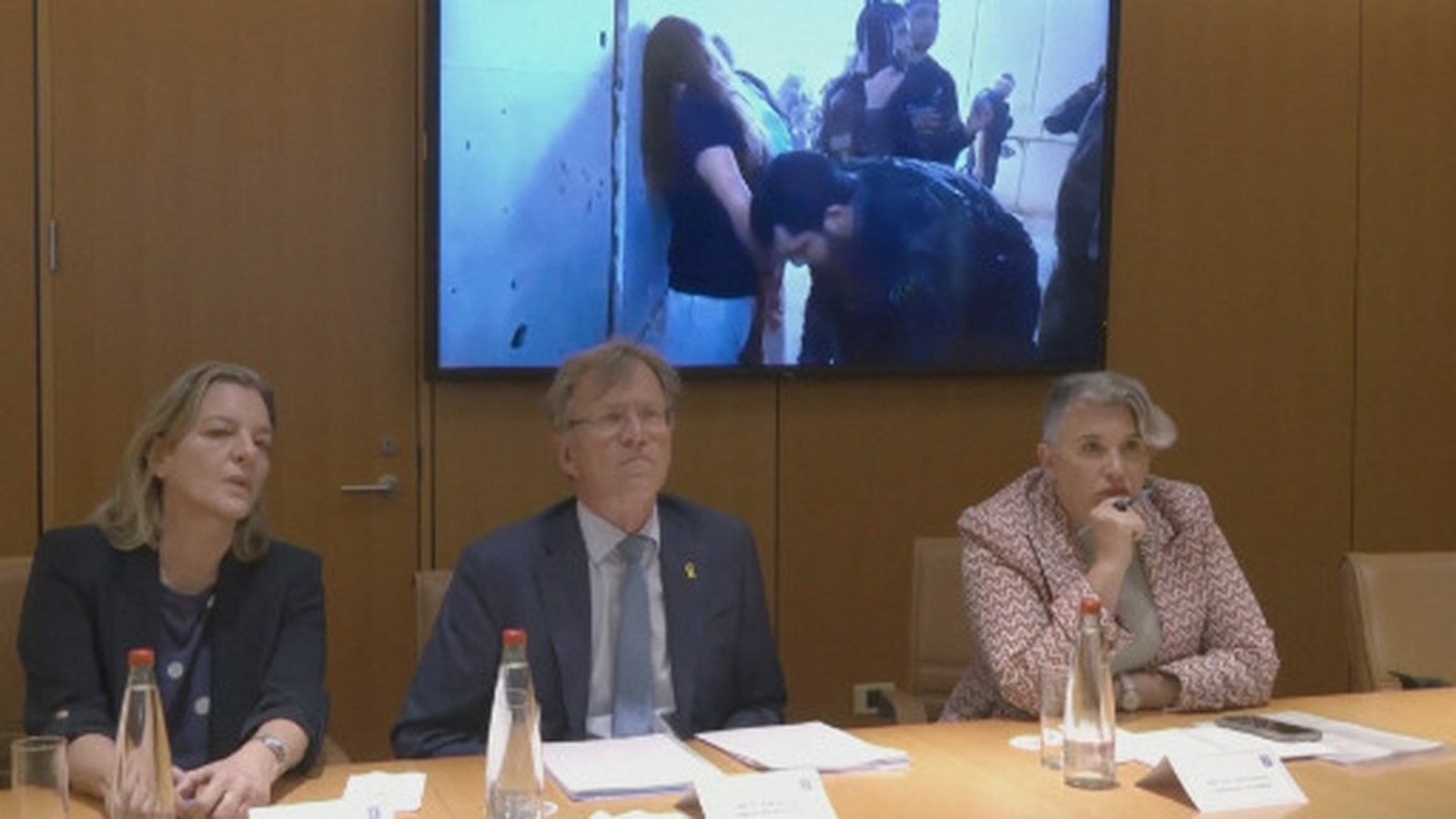The garda, the bicycle and the three-year suspension

“Is it about a bicycle?” asks Sergeant Pluck in The Third Policeman.
Sergeant Pluck and his colleague Policeman Mac Cruiskeen are obsessed with bicycles in a story which is both fantastical and surreal.
The novel was written by Brian O’Nolan, aka Flann O’Brien, in 1939 and 1940 and yet its themes of officiousness, absurdity, authority, and farce still resonate, and are reflected today, in the tale of the garda investigation into two bicycles not stolen and two missing wheels which quietly played out over the past four years.
The story might also be considered funny if it wasn’t so serious.
Community Policing in a Pandemic
It all began in 2020 in the midlands where a bachelor farmer in his 70s lives on his own. He regularly went for a drink to his local GAA club where he often met his local garda, a parent with children playing who coached one of the teams.
The two men were friendly and had a drink and a chat together on several occasions.
The farmer was having trouble with his blood circulation. His leg was turning blue and he was getting pains in his knees. His doctor told him to exercise more and get a bicycle, so he bought one in a shop but couldn’t cycle it home. He arranged for it to be delivered to his rural farm.
Then in March 2020, Covid-19 struck, and the country went into lockdown.
The GAA club and the bicycle shop, along with the rest of the country, closed down. The man was confined to his home and farm. The bicycle he bought remained in storage.
The Garda has served almost thirty years in An Garda Síochána. He has an unblemished record. He has received several commendations for ‘exemplary service’ – at least six in the year before all this happened.
His family is steeped in the force and public service with other family members having not only served in the gardaí, but also in the Defence Forces and the education and health services.
The garda knows most people in his area and knows what’s going on. He also knows most of the local criminals and they know him. He has arrested, charged and given evidence against many of them in the local courts.
He kept in touch with the bachelor farmer during lockdown as part of his community policing remit and visited the elderly man from time to time to see if he needed anything.
During lockdown, gardaí were very involved with their communities, checking in on people, delivering food and making sure everything was alright. They were highly commended for it. This garda was no different, except he didn’t receive a commendation for what happened next.
“Listen,” the farmer said to the Garda one day, “I could do with a bike.”
“I have a problem with my knees. The doctor told me to cycle and I bought one but the shops are closed. I can’t get it.”
The garda told the farmer he’d see what he could do.
The garda asked around to see if anyone had a spare bike. He said it to a friend who looked after property – houses and rentals – where people often left behind things they didn’t want such as clothes, furniture and old bicycles.
“I might have a bike for you,” the property manager told the garda and he did. He gave him one but the garda soon realised it was not suitable. It was a young person’s bike. The wheels were too narrow. The saddle was too thin and high and too uncomfortable for the elderly man.
The garda left this bike lying against a wall at the back of the garda station.
This was to become the second suspected stolen bicycle in a criminal investigation followed by a discipline inquiry into the actions of the garda that has become known in some circles as “Operation Flann O’Brien.”

The Two ‘Stolen’ Bicycles
There were at least five bicycles at the back of the garda station in a place the staff called “the lost and found.” The bikes were not part of any criminal case and were not being stored as evidence. They had Garda PEMS (Property Exhibits Management System) stickers on them but hadn’t been claimed and had been lying there for some time.
The bicycles had in fact already been earmarked for disposal. Gardaí store seized cars, vans and bicycles for a time and if unclaimed or the owners aren’t found, they are sent for auction, usually to Wilson’s Auctioneers. These bikes were also due to be handed over for auction.
On 3 May 2020, the garda picked out an unclaimed PEMS black and orange Trek bicycle and put it in the back of a garda van. He didn’t ask permission and didn’t fill out the paperwork.
He didn’t think about it because he was giving the elderly man the lend of the bicycle until lockdown was lifted and he could get his own.
Between 7pm and 7.15pm the following evening, the garda dropped the bike out to the farmer’s home. He told him it was only a loan and that he was to give it back when his own bike arrived. The elderly man agreed and expressed his gratitude to the garda.
Someone saw the garda take the bike out of the station and reported it. CCTV was checked and the incident was confirmed. A report on a suspected stolen bicycle was filed and it went up the ranks to the higher officers in the division.
The incident was now official and on the record. It had, in garda parlance, “gone to paper.” Local supervisors and managers had no choice but to go by the book.
“The culture in An Garda Síochána at present does not allow for anything else,” one of the garda’s close colleagues said, “if they didn’t act, they’d be in trouble.
“It had gone nuclear.”

Operation Flann O’Brien and The Boys from Dublin
An act of charity by a community-based garda for a distressed elderly man living on his own during a worldwide pandemic became the focus of a major criminal investigation. It was led not by local or regional officers, but by a team of specialist detectives sent down from Dublin.
The National Bureau of Criminal Investigation is usually tasked with investigating the most horrific and serious crimes including homicide, genocide, sex offences and cold cases.
Its criminal investigation remit is, according to the garda website, “concerned at a national and international level with the investigation of a wide range of major crime types committed within and outside the jurisdiction e.g. murder, false imprisonment.”
The bureau had now been called into the midlands to investigate the suspected theft of a bicycle.
The second bicycle was also discovered lying against the wall at the back of the station. This also became part of the case. The detectives had to establish that this too had been stolen.
A so-called ‘dawn raid’ began just before 7am on the morning of 4 June 2020.
A team of six detectives from the National Bureau of Criminal Investigation in three official Garda cars arrived at the garda’s home in the midlands. The family were still in bed.
The garda hadn’t been long in bed. He had been out working on a criminal investigation past 2am that morning – work for which he subsequently received a commendation.
The man, his wife and the other family members were bewildered and very upset.
The ‘crack squad’ arrived with a search warrant they had secured from a judge the day before. They had information which led them to believe they were investigating the theft of two bicycles and two apparently very valuable bicycle wheels. It’s not clear how the two wheels became part of the investigation.
The garda told them he hadn’t got the bikes or the wheels but that he knew where the bike he gave to the elderly man was. He told the detectives that if the six of them went to the farmer’s home they would “put the fear of God into him.”
The garda got into his car and asked them to follow him down to the elderly’s man’s farm.
The bike was lying against the wall in an outside shed. The PEMS sticker (Property Exhibits Management System) sticker was still on it. The garda had told the farmer not to take it off because he wouldn’t have the bike for very long and it would be going back to the garda station as soon as he got his own.
The detectives seized the bike from the farmer, along with the garda’s phone. This was particularly distressing for him. A close relative of his was terminally ill and they spoke on that phone. The relative died six weeks later. The garda was suspended from duty later that day.
The investigation quickly established that there was only one suspected stolen bike. The second one that was unsuitable for the farmer had been given to the garda by his property manager friend. It was not therefore part of the “property and exhibits management system” and had not been removed from “garda custody.”
There was no information on the two missing ‘very valuable’ wheels.
The garda was interviewed under caution. A file was sent to the Director of Public Prosecutions. The DPP examined the case and directed in a relatively short period of time, in April 2021, that there was to be no prosecution. The garda had in fact committed no crime.
But that was not the end of the matter.
From ‘Beyond Reasonable Doubt’ to ‘On the Balance of Probability’
By the time the garda was cleared of any criminal wrongdoing he had been on suspension for ten months.
Even though he had not been found guilty of anything and had in fact been told he had no criminal case to answer, his suspension was extended. He was informed he was to be the subject of a disciplinary inquiry.
The standard of proof in a criminal investigation is guilty beyond reasonable doubt. When that standard could not be reached, An Garda Síochána moved to seek a guilty verdict on the balance of probabilities.
“They couldn’t get him one way,” a colleague said, “so they tried another.”
Mysteriously, while the criminal investigation had commenced ten months earlier into two missing bikes and two missing wheels, by the time the disciplinary inquiry began, one bike and two wheels had fallen away.
This internal investigation focussed solely on the bike taken from the station.
The garda had, however, been suspended based on information that two bikes and two wheels had been stolen. Garda suspensions are supposed to be reviewed every three months. This garda’s suspension was regularly renewed in spite of the fact that the information had now changed and it had been established that there was only ever one bike at the centre of the alleged criminal and disciplinary offences.
There never was any evidence of a second bike or two ‘very valuable’ wheels having been stolen.
The garda remained on suspension for another two and a half years until following an intervention from his solicitor and senior counsel Damien Tansey.

He was partially reinstated in August 2023 and things started moving in a disciplinary process which up until then seemed to have been going nowhere.
The garda was put on restricted duties which meant he was not permitted to drive an official car or have any official engagement with the public. He was still not fully vindicated.
“For a man who was very active in his community and local GAA club, this had a devastating effect on him and his family,” a colleague said, “everyone in the area knew he had been suspended. It went around like wildfire – ‘suspended for stealing bikes.’”
“And nothing was happening, and as time went on, people started saying ‘there must be something to this, sure they wouldn’t have him out that long.’”
The garda’s reputation among the law abiding and criminal communities was severely damaged. It took a toll on his health and the health of his family. His finances suffered. His wages were cut. He lost some allowances. He lost out on the opportunities to earn additional money through overtime. It affected his pension.
The humiliation, shame, pain, and distress he felt at having been wrongly accused of a crime only to have been cleared was then exacerbated by the prolonging of the anguish and uncertainty for another three years through a disciplinary process.
Prior to the bicycle investigation, the garda used to organise a regular night out in the GAA club for elderly people in the community. They would come together to chat, have a drink and play cards. Everyone, including the garda, enjoyed it and looked forward to the occasion. It ended prematurely.
“He stopped doing it,” a friend said. “He couldn’t face it.”
The Charges and The Sworn Inquiry
It took from 21 April 2021, when the DPP’s directions that there was to be no prosecution came back, until 7 February 2024, a total of 1,023 days,for the sworn inquiry into the garda’s actions to begin.
The garda was presented with five disciplinary charges that cited, amongst other official orders, regulation 5, reference number 4 and HQ Directive 060.2019 in bureaucratic and legalistic language.
The first charge the garda faced was discreditable conduct: “That is to say that you, Garda (name) on or about the 3 May 2020 selected and placed one PEMS Black and Orange Trek Bicycle, (Serial Number supplied) into a Garda van at (location) Garda Station with the intention of taking it to a neighbour at (address supplied) without permission and/or authority and/or any apparent legitimate reason.”
The said Discreditable Conduct is a breach of Discipline within the meaning of Regulation 5 of the Garda Siochana (Discipline) Regulations 2007 and is described at reference number 1 in the schedule of the said regulations.
There was also a second similar charge of discreditable conduct by delivering the bicycle “to a neighbour… without permission and/or authority and/or any apparent legitimate reason, and placed this said bicycle into the custody of a neighbour (address supplied) from where it was recovered on or about the 4 June 2020.”
The garda was also accused of neglect of duty because he “failed, refused or neglected to ascertain” how this bicycle “had come into garda custody” and of misuse of property “by wilfully and/or carelessly misusing and/or misappropriating the said bike without good or sufficient cause.”
The final charge was disobedience of orders “that you… failed to comply with and/or wilfully disobeyed the provisions of HQ Directive 060.2019 and the Property and Exhibits Management System (PEMS2) Policies and Procedures, without good and sufficient cause.”
The disciplinary inquiry sat for four days on the 7, 21 and 22 February 2024 and on 5 March 2024 in a garda office in an eastern county rented for at least €500,000 a year through the Office of Public Works.
The board comprised a junior counsel, a chief superintendent, and a detective superintendent. Around fifteen people gave evidence. They were mainly members of the gardaí but crucially for the garda, the elderly farmer also agreed to testify. He told the full story of what had happened and how the garda had tried to help him.
‘God, if I’d known it would have caused all these problems, I never would have taken the bike from him. I just couldn’t get my own’ he said.
It was pointed out during the hearing that gardaí had brought people in marked garda cars to collect their medicines and other vital supplies during the pandemic. It was a valuable and much appreciated public service.
However, it was also agreed that this was a technical breach of the force’s regulations. Ordinary members of the public are not supposed to travel in garda cars unless they are under arrest or in case of an emergency.
The board was asked to consider the reality of the situation, that this bike with its garda PEMS sticker still on it was put into a garda van, in broad daylight, in full view and in front of a CCTV camera and then driven out to the elderly farmer’s home in the midst of the pandemic.
The garda admitted he had given the bike to the elderly man for his medical condition and when the “crack squad” came looking for it, he showed them where it was. Did the board really believe that this showed an intention to steal?
On the 5 March the board exonerated the garda. There had been no breach of discipline.
Questions
The gardaí are often ridiculed for some of their actions and their use of language known as ‘Garda speak.’ But as well as investigating crime, gardaí living and working in communities help people. They solve problems, get involved in clubs and community events, create a well of goodwill and develop channels of solid information and local knowledge.
However, this case and others like it not only damage that affinity the public have for the gardaí and relations between the two, they also do not serve the gardaí well in their efforts to portray themselves as an efficient, effective, and compassionate community policing service.
The garda associations who represent gardaí at all ranks say this case also raises serious questions.
Why was the National Bureau of Criminal Investigation brought in to investigate the case of one or two suspected stolen bicycles and/or two suspected missing or stolen bicycle wheels?
Why was the garda’s suspension not lifted once the DPP found he had no criminal case to answer?
Why was his suspension continually renewed on the basis of what has now been shown to be erroneous information?
Why were disciplinary charges preferred against the garda when the DPP quickly decided he had no criminal case to answer?
Why did the disciplinary process take almost three years to conclude?
The Garda Representative Association, which represents rank and file gardaí, including the garda at the centre of this case, has also raised wider questions as to how An Garda Síochána under the present Commissioner Drew Harris operates the disciplinary and suspension procedures.
Drew Harris insists that suspension is very carefully considered at local level and in garda headquarters and is regarded as “a very serious and grave step.”
Both he and Assistant Commissioner John Roberts, who also joined the gardaí from the Police Service of Northern Ireland (PSNI), updated the Policing Authority last week on the recent pattern of suspensions, the number of which they insisted was going down.
They said suspensions had been imposed for alleged actions taken while gardaí were off duty, including in relation to allegations of domestic abuse, assault, coercive control, serious sexual assault, driving under the influence and related offences such as a road traffic collision or the garda’s behaviour towards the investigating garda.

The Policing Authority expressed its support for suspensions for incidents of a serious nature and for criminality such as coercive control or passing information to criminal gangs.
“I would have the view that these are examples of the guards tackling unacceptable and illegal behaviours directly and head on and perhaps in a manner that hadn’t been done in the past,” the chairperson Elaine Byrne said.
However this case does not fit in to any of those categories. Neither do many of the other cases involving the 99 gardaí who are currently on suspension, some also for several years.
Some of those gardaí have also been found to have no criminal case to answer but they remain suspended pending the conclusion of disciplinary inquiries.
Court Challenges
One Chief Superintendent who was suspended for five years took an action against the Commissioner, the Minister for Justice and the Attorney General challenging his suspension.
Chief Superintendent Patrick Diskin had been suspended following allegations that he had engaged in inappropriate behaviour and language at work between 2015 and 2018.
The Chief Superintendent strongly denied any wrongdoing and applied for a High Court injunction as a matter of urgency because he was due to retire from An Garda Síochána and wanted his suspension lifted before leaving the organisation.
Following out of court discussions the judge was told that the matter had been “amicably resolved.”
The Commissioner, the Minister and the Attorney General then wished the Chief Superintendent well in his retirement.
No details of the settlement were released and more particularly, no details on how much all this cost the taxpayer.
The Commissioner also lost a separate case in the High Court and then in the Court of Appeal which quashed his decision to dismiss Garda Raymond Hegarty who admitted engaging in a sexual act with a “vulnerable witness” at Lismore Garda Station in Waterford.
Ms Justice Mary Faherty said Mr Harris should not have embarked on a particular process (the Section 14 process) because the garda had already been the subject of a disciplinary process.
Instead, the judge said, the commissioner could have just “dismissed the applicant outright,” in other words, sacked him.
There is no doubt that a range of sanctions from discipline to suspension to dismissal should be available to the commissioner, but the time taken to work through this process appears unduly long and therefore unfair.
In fact, the gardaí have often been ‘hardest on their own’ and have received much praise, particularly from victims, for their investigations into other gardaí committing serious crimes.
A number of cases are currently before the courts. Several gardaí have already been jailed.
One of the most notorious examples is that of Paul Moody, a former garda who tortured and terrorised his former partner. The case was swiftly, thoroughly, and professionally investigated and Moody was charged and convicted. He’s currently serving three years in prison.

“A Culture of Fear”
The Garda Representative Association which supported the garda in the bicycle case at the sworn inquiry says there is a lack of proportionality and an absence of common sense in the disciplinary process as currently operated.
“The application of the law is in a manner completely at odds with the ethos of the gardaí as a community police service” the president of the GRA Brendan O’ Connor says. “A garda has awesome powers but has to be allowed use common sense.”
“We see a culture of an overzealous application of discipline that is disproportionate, that is not enhancing policing or empowering gardaí to go out and make rational, well-based judgements. We are operating in a culture of fear of making mistakes and discipline is being used to punish rather than educate.”
The association representing garda sergeants and inspectors says the current policy is having a chilling effect on policing.
“The suspension issue needs to be looked at,” the deputy general secretary Ronan Clogher says. “There is a high level of oversight but gardaí need to be able to do their job without fear of overzealous oversight. There have been high numbers suspended and there needs to be proper and fair procedures.”
To Be Continued…
Garda headquarters has still no official confirmation that the discipline process has been completed and that the garda who gave the elderly bachelor farmer the loan of a bicycle has been totally vindicated.
The Board of Inquiry has twenty-one days to inform garda management of its decision and the garda can be formally and fully reinstated.
In the meantime, the whereabouts of one bicycle and the two “missing” wheels remain unknown.





